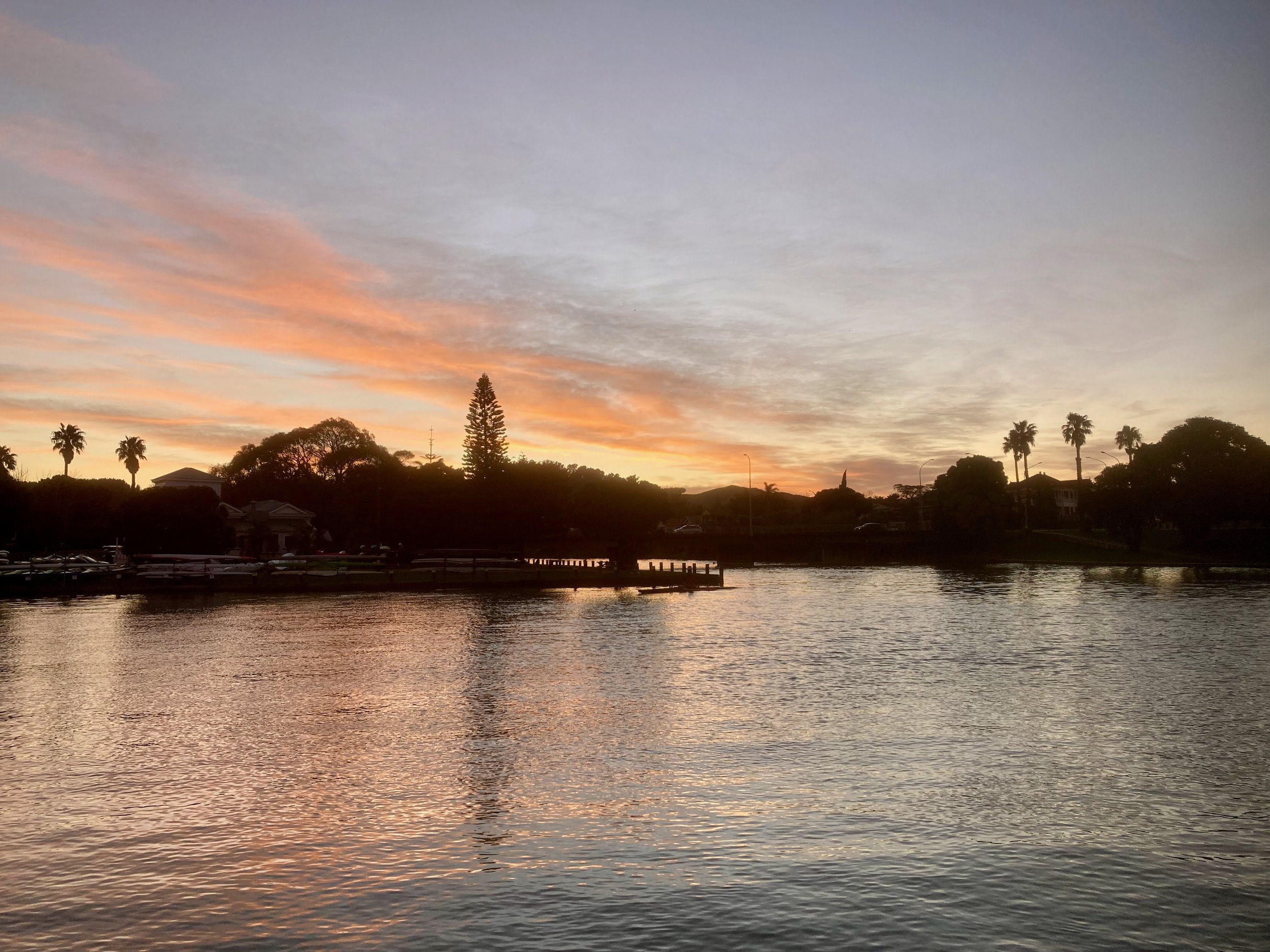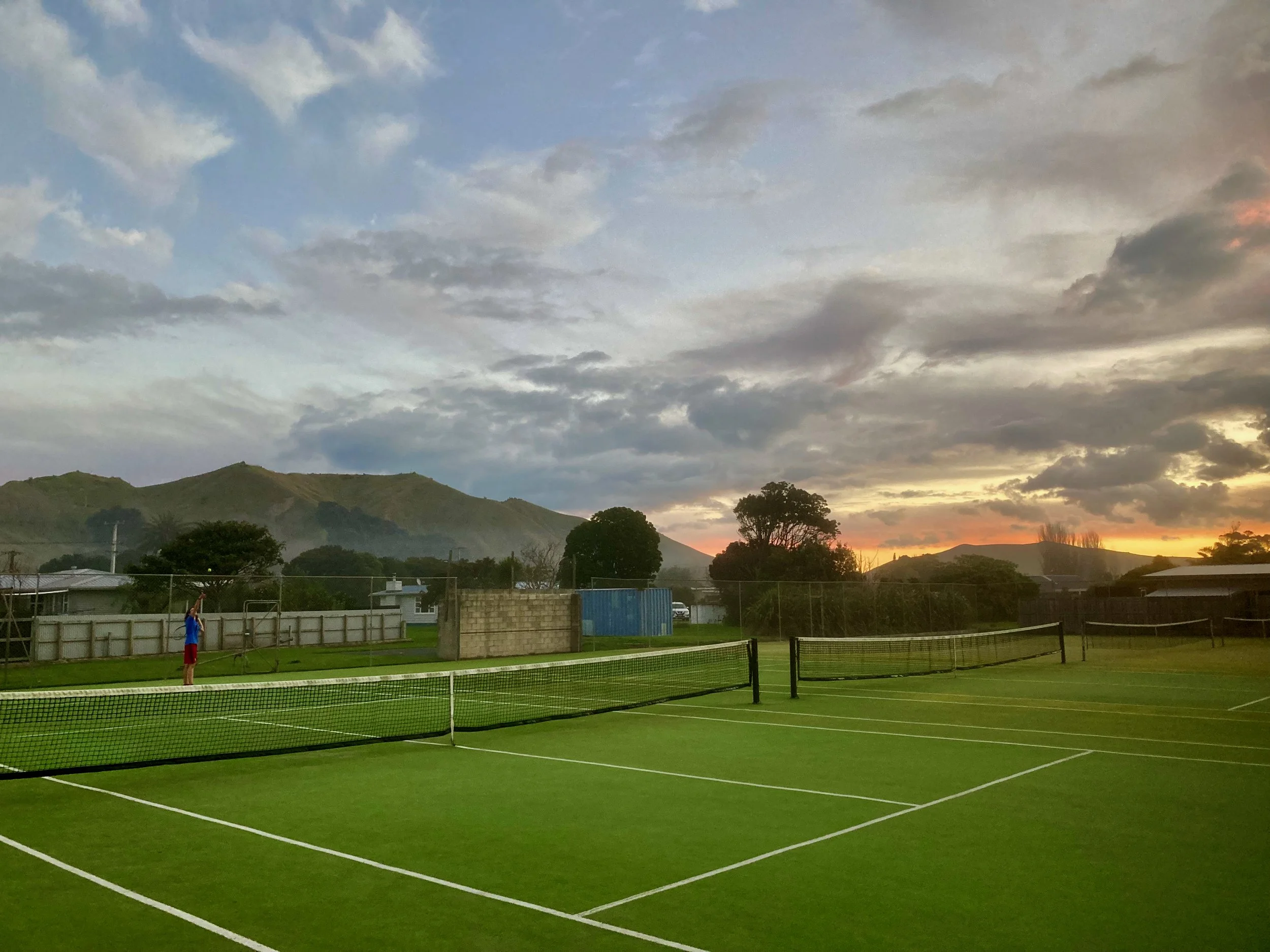Fluffy Ducks
How are you feeling today?
Box o' birds.
Sorry, what's that?
Box o' birds.
Boxer birds? Sorry, what does that mean? Is that a good thing?
Yeah, you know, a box o' birds. Like fluffy ducks.
Fluffy ducks?
Sure, fluffy ducks. Just ducky. Ready to fly.
He flapped his arms and smiled encouragingly. Fortunately, we were in agreement that he was ready to fly, at least once I figured out how he was feeling that day. So after a brief listen to his heart and lungs, we sent him home with a few more days of medication for the exacerbation of his chronic lung disease. The house officer (a junior doctor who has not yet specialized) jotted down a few notes from our conversation in the paper chart while the registrar (a senior doctor training in medicine) reviewed the medications for discharge. We chatted with the patient about idioms in different countries—the registrar was from the UK while the nurse and house officer were both Kiwis—then went our separate ways. The patient left the hospital and we moved to the next bed in the ward.
It was my first week of inpatient service at Gisborne Hospital, leading one of three teams caring for patients on the medical wards. I was reminded of my first day of residency training when I opened my mouth to present the details of my first patient in the pediatric ICU and was suddenly seized by terror. What if they present patient information differently here? Maybe all the practice I'd done in medical school had been a sort of dialect and now I would be misunderstood or even ridiculed by the group of doctors, nurses, respiratory therapists, and other staff gathered for rounds. Seeing no other way out than through, I stumbled through the information (without being mocked), and soon learned that despite some differences, the way I had been taught worked just fine outside of North Carolina. Much of the language of medicine is universal, and the idiosyncracies that come from our particular experiences can usually be translated.
Now I find myself much farther from North Carolina geographically and culturally, but the same principle holds true. Many of the details in my daily practice are unfamiliar—different medications are available, British spellings of words like oesophagus also make for unfamiliar abbreviations like TOE for transeoesophagel echocardiogram (TEE in the US), and even the units for many lab tests are different. A creatinine of 78 here may be normal, while in the US that would be unheard of even in renal failure. If you have a glucose of 5 in the US you likely would be dead, but here it is normal. There are entirely new systems to learn, like who to call if you need a cardiology consult and how to get a CT scan. And, of course, the idioms around medical terminology can vary greatly with cultural context.
A view from my morning bike commute along the Taruheru River
From "box o' birds" to "feeling puffed" to "passing water", I often have to ask for clarification of common phrases. Maori phrases are part of the vernacular for most Kiwis, and in this region where many Maori people grow up embedded in traditional culture, some people speak te reo Maori first and English second. Even with the doctors in training, many are from the UK, so we often have three-way translation occurring to fully understand each other.
Yet, despite the cultural challenges, I have yet to have a frustrating interaction. Patients and families are almost uniformly grateful for the care they receive and are usually curious about my background and what brought me to Gisborne. There is a generosity of spirit that permeates interactions so that, even when people have to repeat themselves or explain what they mean, there is no sign of impatience. And I am learning—slower than I would like, but undoubtedly learning.
In fact, I have not learned so much so fast since those early days of residency training when I felt I was learning medicine all over again. That first month in the pediatric ICU I realized my classroom knowledge could only take me so far and I had to learn to apply it in the real world. In some ways, I find myself once again relearning medicine. There are the new phrases and new units and new systems. But I also find myself unlearning much of what was ingrained over my prior 7 years of medical practice--the necessary costs of practicing in the US.
That first week on the inpatient service here, I was incredulous at how efficient our team was. I unconsciously hurried us through rounding on our patients, then wondered what I was supposed to do the rest of the day. Wasn't there more documentation to do? Billing or coding? Chart review? I sat at my computer, refreshing my patient list, uncertain what to do next. Should I go check on my house staff? I got some lunch from the hospital cafe and instinctively brought it back to my desk, then realized there was no pressing need to spend more time in front of my computer.
I have since learned to slow down on rounds, to let our conversations with patients wander, to delve more into their home life or their work history, to do a thorough neurologic exam, to use bedside ultrasound to enhance our assessment of cardiac function, to talk through the plan with the nurse one step at a time to ensure it is reasonable, to spend a few extra minutes reviewing the EKG in detail so the student and the trainees all learn a bit from it. I have learned to eat lunch with colleagues and house staff, outside if weather allows. I try to avoid eating at my desk if at all possible. I have learned there is time to read up on challenging cases and discuss them with colleagues, learning from their experience and sharing my own. And I am almost always home in time for dinner with my family, often in time to help with dinner prep or to take the kids out for a bike ride or a game of tennis or to feed the chickens before it gets dark.
Sunset tennis with O
Let me be clear: I still have busy days. I still have hard days. This is not some paradise where we always go home early and all the patients are above average. There have been days when I felt like I was scrambling all day to keep ahead of a deteriorating patient or coordinating a transfer to a bigger hospital for more specialized care. And we do have limited resources here. With nationalized healthcare, the vast majority of costs are borne by the government with small co-pays from patients for office visits and medications. There is not the plethora of technology and specialists and expensive medications I'm used to in the US. Often there is only 1 or 2 medications available in each pharmacological class. Procedures I have considered routine like EEG to evaluate for seizures are either unavailable in our small hospital or only available when a specialist visits every few months. But despite the limitations, my practice here is more fulfilling, I provide better care overall, and I still have time to dedicate to my family and my passions.
The key difference is that the vast majority of my day is dedicated to one of two things—patient well-being and team learning. I rarely find myself doing busywork that doesn't help the patient, which means that even on a busy day, most of what I do is useful and fulfilling. Some of the clerical burden falls to the house staff, but even that load is much lighter than I'm used to. If you want to find the residents in a US hospital, there is little doubt about where to look. You can find them in the workroom, usually a windowless room in the basement lined with computers where they spend most of their day with the digital patient. Here, I am much more likely to find the doctors in training on the ward, checking on patients, talking with nurses, drawing blood for tests, meeting with families. If they're not on the ward, they are often having tea or lunch as a group in the cafe. They get more hands on training, more mental space to learn from their experience, and also seem to have more time to develop relationships with each other.
This past Friday, I had the privilege of joining the Cone internal medicine residency graduation remotely. Through the magic of technology I watched as each graduate was celebrated, and even had a chance to chat with a few former colleagues. The graduating third year residents were the first group I had worked with from their first day all the way through to their last year of training (at least through April) and the preliminary interns were a special group that seemed close even after only a year with us. I felt the expected mix of emotions at such a transition: pride in who they've become, sorrow that they would all be scattering across the state and country for the next step in their journeys, reminiscence about how much they've grown, gratitude for the times we'd shared learning and working and eating pie together. And there was also regret and anger that they had trained in and were entering a medical system that so warped our profession. What kind of doctors would they be in a better training environment? What kind of careers and lives would lie ahead for them?
Matariki Dawn - the sun rises on a new year in Aotearoa
When our days are not filled with administrative nonsense, it is possible for the practice of medicine to be both effective and enjoyable while also enabling a fulfilling life. I had a sense this was true, but found it difficult to achieve in the US. Despite many moments of joy in work and in life, many meaningful connections, the days were often busy without being fulfilling. The care I helped provide was well-intentioned but often ineffective. The moments of connection with patients or colleagues had to be dredged from the mire of administrative tasks.
It was not until I started working here that I could finally see the profession I thought I had signed up for. And so I go to work each morning excited to spend another day relearning medicine, fluffy ducks and all.


